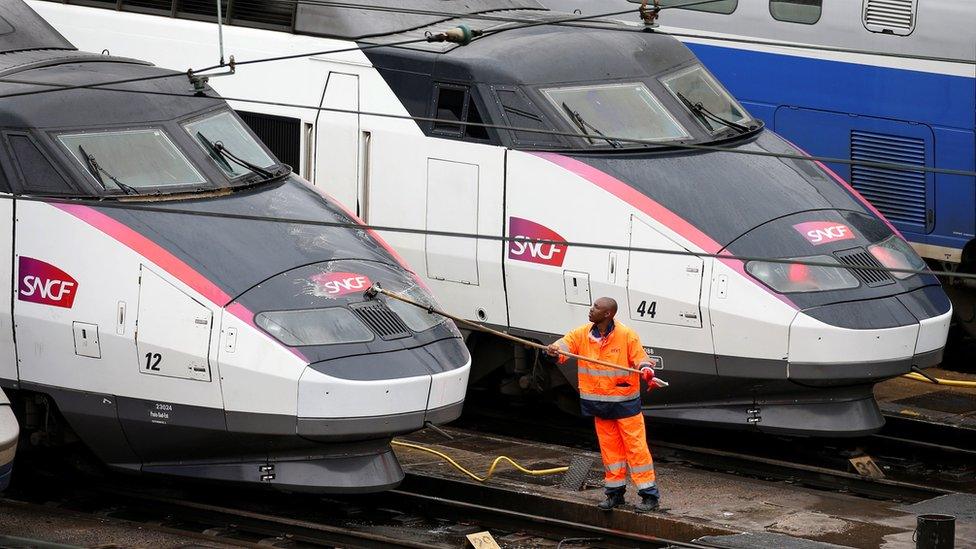Hollande: Will he, won't he stand again?
- Published
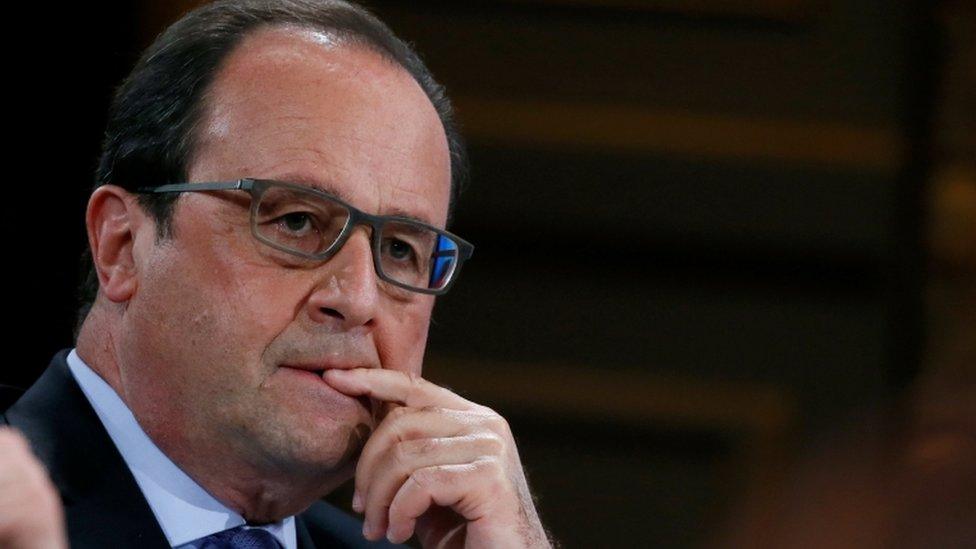
Could Francois Hollande bounce back from record low popularity ratings?
It is 20:00 on the evening of 7 May 2017, and the first exit polls have been fed through to rolling TV news.
And (the announcer tells us), the next president of the Republic of France is - Francois Hollande.
Cue a very happy man strolling through the Elysee gardens.
Of course today it sounds utterly implausible. France's head of state has given the word unpopularity a whole new meaning, the country is a strike-bound, demoralised mess.
And yet the scenario is not totally to be dismissed. Certainly there is one person who believes it might come to pass.
And that person is Francois Hollande himself.
The last few weeks have seen the French press engage in a repetitive guessing game: will he, won't he, will he join the dance? (To quote The Lobster Quadrille).
Will he, or will he not, take on once again the mantle of the left and stake a claim for re-election?

French labour reform bill - main points
The 35-hour week remains in place, but as an average. Firms can negotiate with local trade unions on more or fewer hours from week to week, up to a maximum of 46 hours.
Firms are given greater freedom to reduce pay.
The law eases conditions for laying off workers, which is strongly regulated in France. It is hoped companies will take on more people if they know they can shed jobs in case of a downturn.
Employers to get more leeway to negotiate holidays and special leave, such as maternity or for getting married. These are currently also heavily regulated.

Increasingly the Paris commentariat is of the view that yes, he most certainly will.
Once again President Hollande's good fortune is working in his favour. As a politician he has made a career out of waiting.
There was once a French prime minister (the forgotten Henri Queuille) who said: "There is no problem that cannot be brought to an end by the absence of a solution."
President Hollande has taken this aphorism to heart. On the economy and unemployment, he has steadfastly refused to offer anything that might be called a solution. Instead he has tacked gently from left to right, doing his best not to offend.
And now - with less than a year till the elections - his native optimism is paying off.
The first signs of growth are re-appearing. Unemployment has fallen for two successive months. The cycle is coming round - just in time.
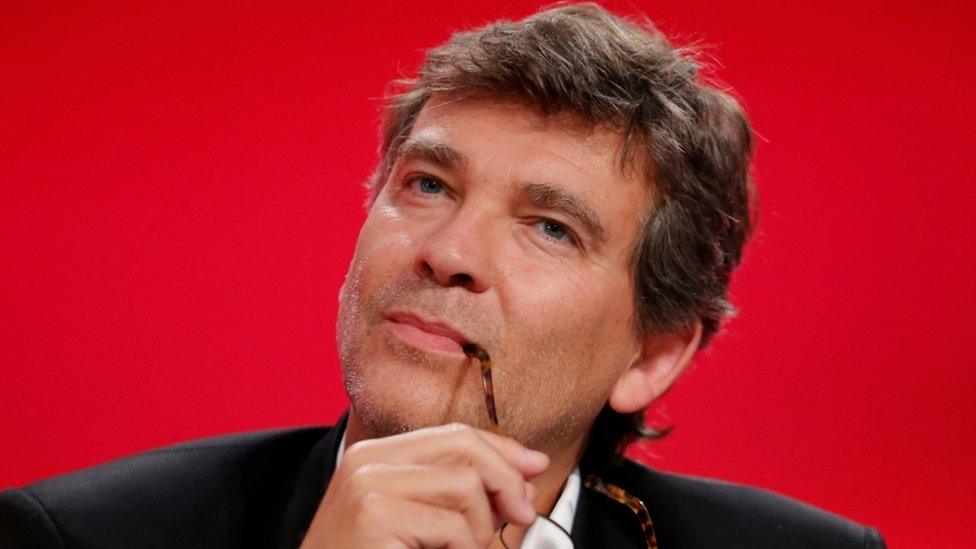
Arnaud Montebourg is a potential candidate of the left
Of course, all this could be knocked off course by this latest outbreak of strikes (against his extremely un-radical labour law).
If the country is dragged to a standstill during the Euro 2016 championships, then it will indeed be another black mark.
But here too, the president is sending out his customary waves of Zenitude - which may well prove more effective than any bracing clutch of actual policies.
The chance of disruption during the Euros is minimal, he will have calculated. No union would be so mad as to wreck such a rare feel-good occasion.
So the feelers will go out; various sectors - like the railways - will be bought off with offers on their specific grievances; and some fudge will be found for the law's contentious Article 2.
And the games will begin.
Another factor working in Hollande's favour is that he is, after all, the boss.
The country has got used to seeing the president's authority challenged by left-wing rebels within his own party - not to mention by left-wingers outside it.
But when it comes to nominating the man or woman to run in next year's election, what influence do these frondeurs have?
Inside the Socialists there are three potential challengers. These are Emmanuel Macron, the liberal-minded economy minister; Arnaud Montebourg, the anti-globalising former economy minister; and the prime minister, Manuel Valls.
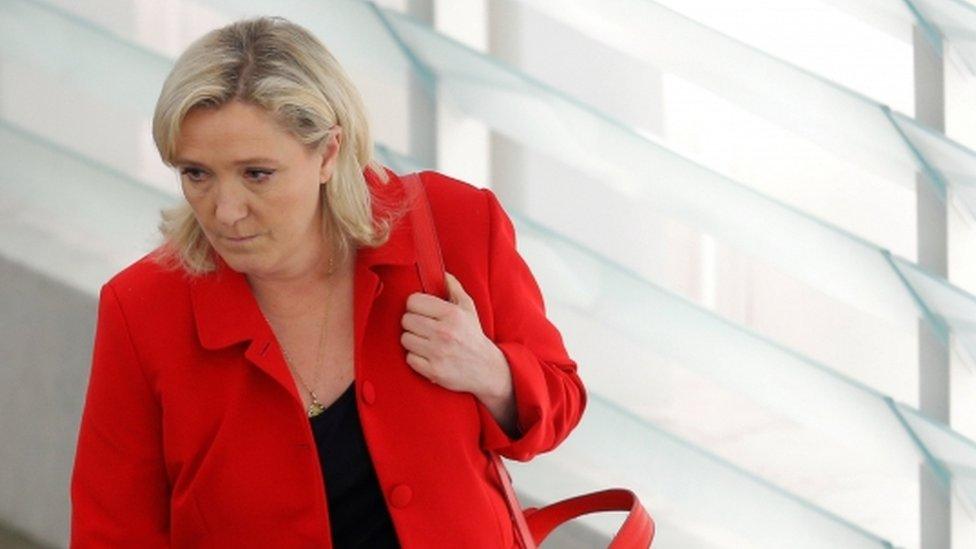
Marine Le Pen has made advances since the last presidential election
Being outside the government, Montebourg is the most dangerous of the three.
Apart from heaping abuse on Hollande's economic record, he is calling for a Socialist Party primary at the end of the year so that the public (or at least Socialist voters) can choose who should be their candidate.
His argument is simple. Only by settling on a single candidate can the Socialists put aside their differences - and minimise the risk of being knocked out in round one.
Remember in round one there will also be various far-left and Green candidates. If the Socialist vote slips too low as a result, then the run-off will be between the right and the far-right (as in 2002).
The trouble for Montebourg is that if Hollande (and his allies running the party machine) choose not to hold a primary, then that will be that.
Conceivably Montebourg - or Macron or Valls - could opt to run on a separate ticket, but they would then be roundly abused for splitting the vote and opening the door for the right.
So come the end of the year, Hollande is the natural choice to run again. The economy is starting to create jobs, and there has been a successful Euro 16.
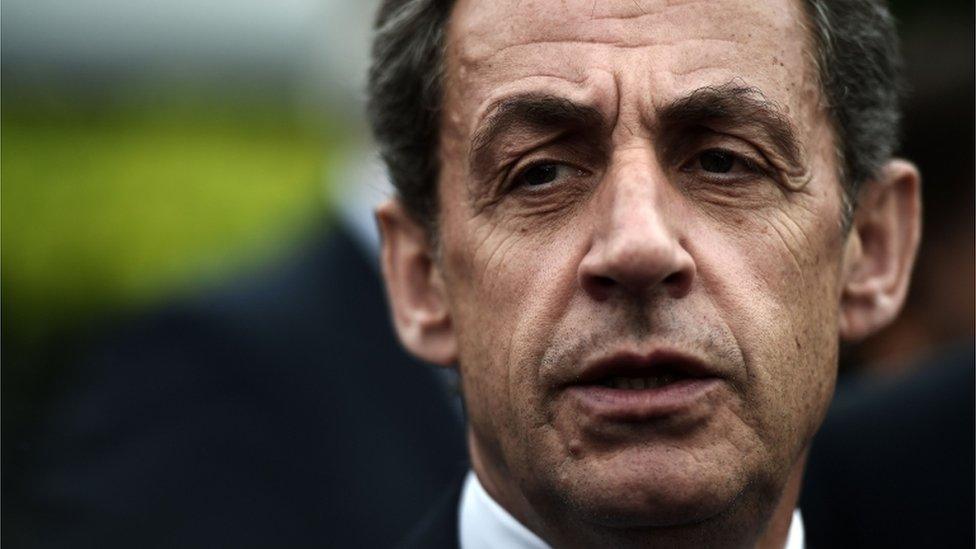
Former president Nicolas Sarkozy is thought to be in the running for a return to power
What better news now than that the right has chosen as its candidate none other than - Nicolas Sarkozy.
Admittedly this is wishful thinking. Sarkozy would be Hollande's ideal opponent, because he is so easily branded as a divisive failure. But there is no guarantee that Sarkozy will be selected in the right's own primary in November.
A more likely primary winner is the former prime minister Alain Juppe - who polls show would easily beat Hollande.
But who can blame him for dreaming?
With Sarkozy leading the right, the first round of the election on 23 April 2017 delivers the following shock result: Marine Le Pen (FN) 27%; Francois Hollande (PS) 23%; Nicolas Sarkozy (LR) 22%.
Round two is a cinch. The centre and much of the right rallies behind Hollande, who wins 65%-35% against Le Pen.
It's five more years.

Francois Hollande:
Born the son of a doctor on 12 August 1954 in the north-western city of Rouen
Attended Sciences Po and another elite institution, ENA
Joined the Socialist party in 1979 and played a junior role as an economic adviser in the presidency of Francois Mitterrand
A member of parliament since 1988, he represents a constituency in the south-central region of Correze
Succeeded Lionel Jospin as party leader in 1997, a post he retained for more than a decade
Elected president in 2012
Has said he would not seek re-election in 2017 if he failed to cut unemployment
Approval rating in office dipped to a low of 12%

- Published31 May 2016
